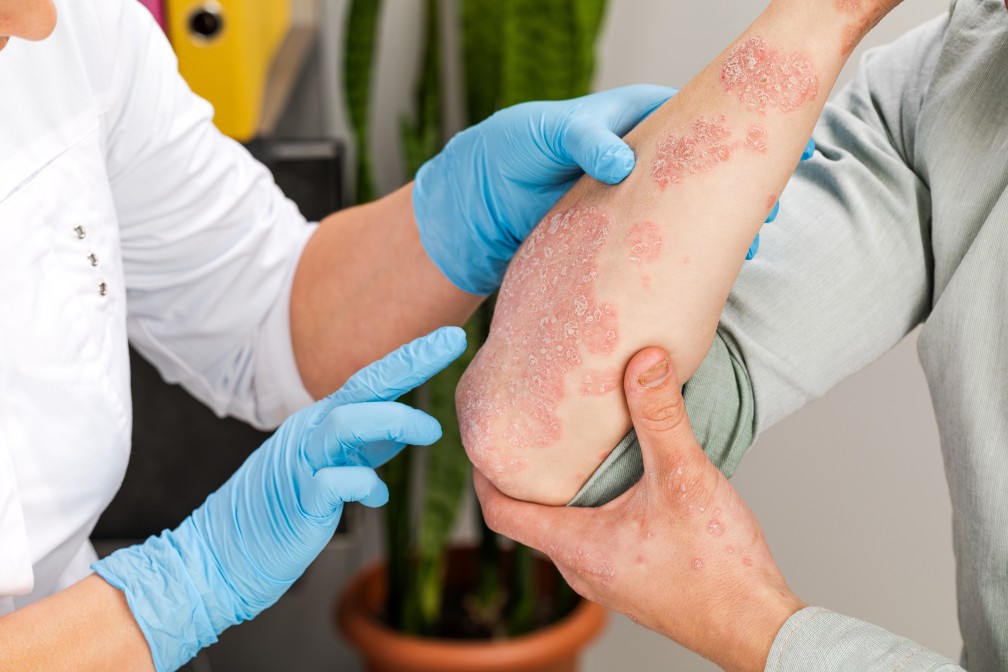Eczema & Psoriasis

Medical Dermatology
Eczema & Psoriasis
Atopic dermatitis, often referred to as eczema, is a chronic inflammatory skin condition that primarily affects individuals with a genetic predisposition and a tendency for allergic reactions. Its cause is complex and thought to involve a combination of genetic, environmental, and immune system factors. There are different types of eczema, with atopic dermatitis being the most common. It typically manifests as dry, itchy, and inflamed patches of skin, often in the creases of elbows, behind the knees, or on the face and neck. Other types of eczema include contact dermatitis, which results from exposure to irritants or allergens, and nummular eczema, which appears as coin-shaped, scaly patches. Treatment options for atopic dermatitis and other forms of eczema aim to alleviate symptoms and prevent flare-ups. They may include topical corticosteroids, moisturizers, and antihistamines to manage itching. In severe cases, immunosuppressive medications or phototherapy (light therapy) may be recommended. Identifying and avoiding triggers, maintaining proper skincare routines, and adopting lifestyle modifications are also crucial in managing eczema effectively. Consulting a dermatologist is often advisable for personalized treatment plans.
Psoriasis is a chronic skin condition characterized by the development of red, raised, scaly patches on the skin, often with silvery scales. It can affect various parts of the body and ranges in severity from mild to severe. In addition to skin manifestations, psoriasis can also lead to psoriatic arthritis, a painful joint condition that affects individuals with psoriasis. Psoriatic arthritis can cause swollen and stiff joints, making it important to diagnose and manage early to prevent joint damage. Psoriasis is not solely a skin disorder; it has systemic inflammatory manifestations, which can affect internal organs and increase the risk of other health conditions, including cardiovascular disease and metabolic syndrome. Treatment options for psoriasis vary, including topical corticosteroids, phototherapy, and oral or injectable medications, such as biologics, which target specific parts of the immune system. Management of psoriasis often requires a multi-faceted approach tailored to the individual's needs and the severity of their condition, with regular follow-ups and monitoring to ensure the most effective treatment plan and prevent systemic complications.

From traditional medical
skin care to cosmetic
services
We understand that your skin is unique, and we tailor our treatments to your specific needs, delivering the highest level of care and expertise. With a reputation for excellence and a focus on enhancing your natural beauty, Grosse Pointe Dermatology is the premier choice for those seeking top-tier dermatological services in a setting of utmost refinement and sophistication. Your journey to healthier, more radiant skin begins here.
